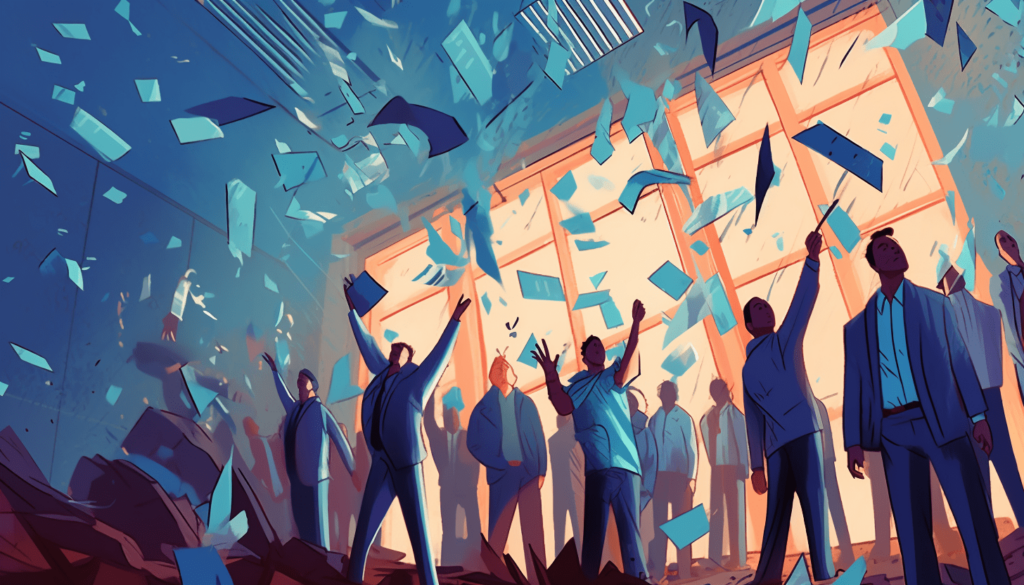Non-fungible tokens (NFTs) have been making headlines and capturing the attention of the creative world, with applications spanning across a variety of industries. One sector poised to capitalize on the potential that NFTs offer is the music industry, where platforms like OpenSea are playing a significant role in facilitating the exchange of unique, tokenized music assets. This article explores how OpenSea NFTs can revolutionize the music industry by fostering innovation, disrupting traditional revenue models, and empowering artists like never before.

Unleashing New Creative Possibilities
The unique characteristics of NFTs enable artists to explore cutting-edge ways of distributing and monetizing their creative works while maintaining control over their intellectual property. By tokenizing their music as NFTs on OpenSea, artists can create exclusive, collector-worthy digital assets that can generate excitement and demand among fans.
Innovative applications of NFTs in music:
- Limited edition album releases: Artists can create a limited supply of their latest albums as NFTs, generating exclusivity and driving up collectible value
- Special edition singles: NFTs allow artists to tokenize rare and unique versions of their songs, such as remixes, alternate takes, or live performances
- Visual albums or music videos: By tokenizing visual components accompanying their music, artists can sell exclusive video content or artwork as NFTs alongside their audio tracks
Disrupting Traditional Revenue Models
NFTs present an opportunity to challenge and redefine conventional revenue models in the music industry, providing artists with new avenues for income generation beyond record sales and streaming royalties.
Alternative revenue streams enabled by NFTs:
- Direct-to-fan sales: By tokenizing their music, artists can sell NFTs directly to their fans, eliminating intermediaries and retaining more profits
- Royalties from secondary markets: Smart contracts embedded in NFTs can automate the distribution of royalties from secondary market sales, ensuring that artists continue to benefit from every transaction
- Collaborative works and partnerships: Artists can collaborate with other creators and tokenize joint projects, sharing the revenue generated from NFT sales
Empowering Artists and Building Community

One of the most groundbreaking aspects of NFT technology is the decentralization it enables, putting power back into the hands of creators. OpenSea NFTs have the potential to transform the music industry by empowering artists with greater independence and providing opportunities to build stronger connections with their fans.
Ways NFTs empower artists:
- Increased control over distribution: NFTs allow musicians to distribute their music directly, on their terms, without the need for record labels or distributors
- Customizable rights management: Artists can define the usage rights associated with their NFTs, tailoring the terms of ownership and licensing to reflect their preferences
- Strengthened fan relationships: By offering exclusive NFTs or access to rare content, artists can build stronger connections with their fanbase
NFTs are poised to unlock a world of potentials in the music industry, with platforms like OpenSea enabling artists to realize their creative visions and leverage innovative strategies for distributing and monetizing their work.
Challenges and Possible Solutions in the Adoption of NFTs in Music

While the potential of OpenSea NFTs in the music industry seems promising, there are also challenges related to copyright, intellectual property rights, and the learning curve for both artists and fans when adopting this new technology.
Potential challenges and solutions:
- Copyright and intellectual property rights: Artists should ensure they understand and adhere to copyright and intellectual property rights regulations to avoid disputes in the future
- Education and awareness: The music industry should focus on the importance of educating creators and fans on the benefits and challenges of using NFTs
- Standardization and compatibility: Collaboration among tech developers, platforms, and artists can lead to industry-wide standardization and compatibility, making NFT technology more accessible and easy to use
In Conclusion

OpenSea NFTs offer incredible potential for transforming the music industry by unleashing new creative possibilities, disrupting traditional revenue models, and empowering artists and building stronger communities. While challenges remain, the continued development and adoption of NFTs have the potential to bring about a paradigm shift in how creators, fans, and the music industry at large interact and benefit from the immense power of digital assets.
